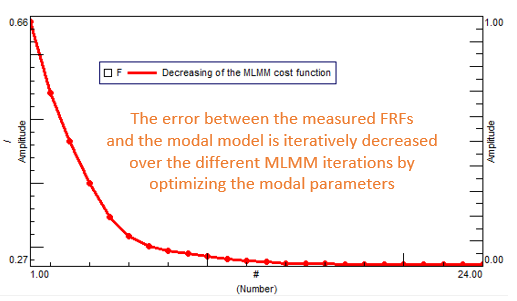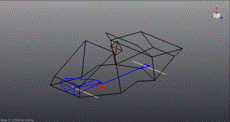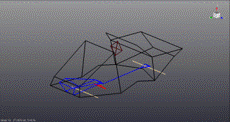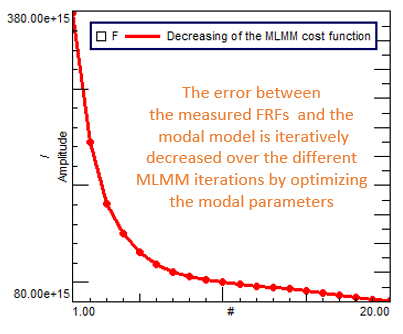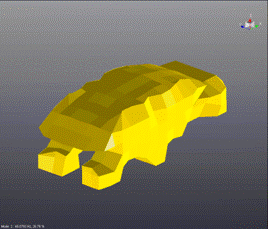MLMM Estimator
The MLMM abbreviation stands for Maximum Likelihood estimation of Modal Model (MLMM). The MLMM is a new iterative modal parameter estimator that uses the well-established statistical concept of maximum likelihood estimation to estimate directly a modal model based on measured FRFs. In the MLMM method, the modal parameters of a modal model are optimized using the Levenberg-Marquardt optimization scheme. The MLMM method provides excellent accuracy for curve fitting for highly damped structures, while still applying some physically motivated constraints (e.g., Reciprocity, realness of mode shapes, rejection of overcomplex modes,..) on the identified modal model, thus making the resulting models well suited for correlating and validating simulation models. Another advantage of the MLMM method is that it is well suited for the scenario where a large number of excitation sources are used to measure the FRFs matrix (i.e., FRFs matrix with many columns) which is usually the case when performing both acoustic modal analysis of a car cavity and structural modal analysis of a fully trimmed car body. In these cases, many excitation sources are needed due to the high level of damping in the structure under test. The MLMM method also performs well in case of noisy data. Since MLMM relies on a non-linear optimization scheme initial values for the modal parameters are needed. Polymax estimator (or any other estimator) can be used to generate these initial values. Polymax is recommended to be used as initial value generator, it produces a very clear stabilization chart that can facilitate the selection of the different modes within the frequency-band of interest.


